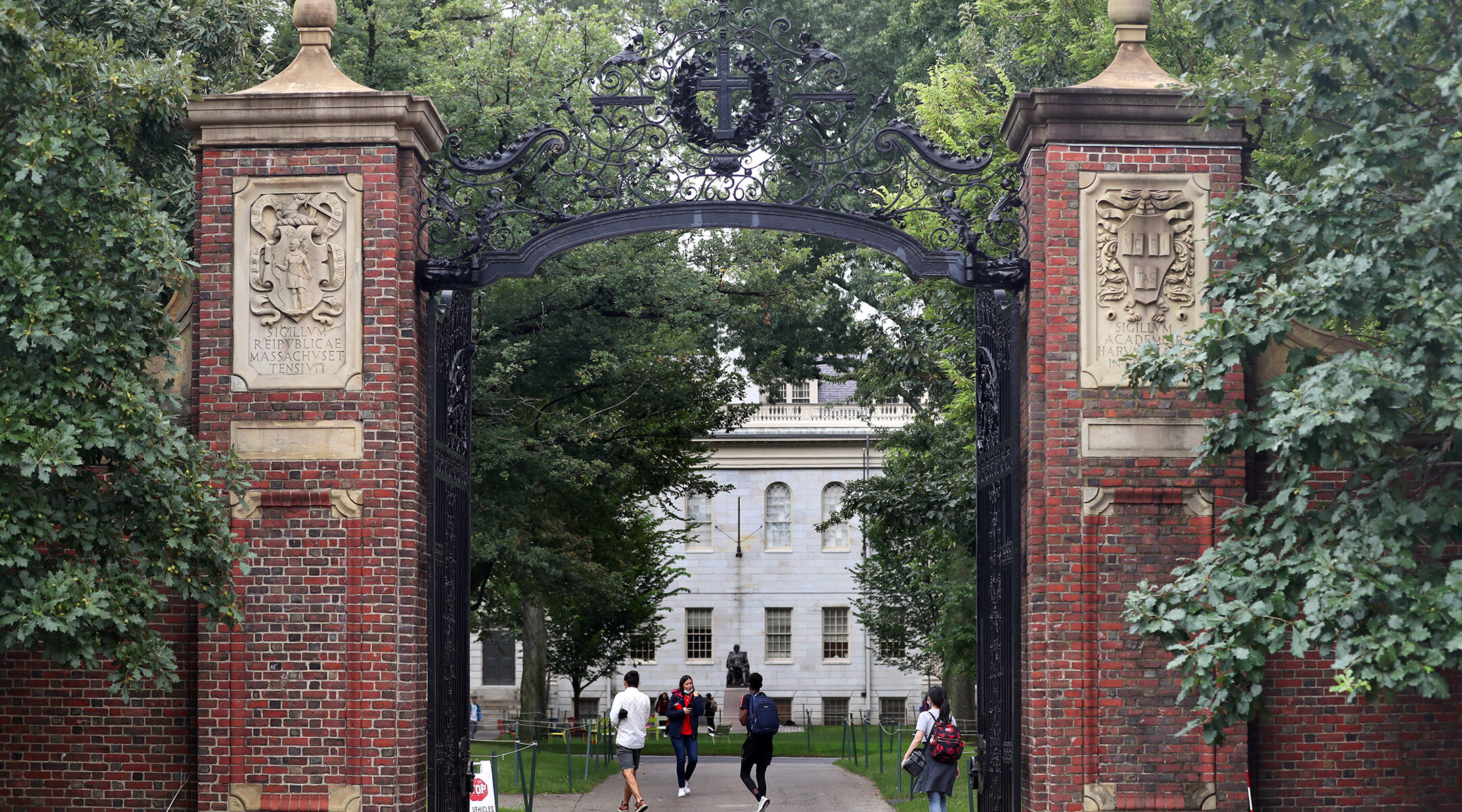Israeli students at Harvard University are facing “dire” exclusion on campus and other students are suffering because of “political litmus tests” to participate in clubs and activities, a task force charged with reporting on antisemitism at Harvard has concluded.
The task force was convened by the school’s Jewish interim president, Alan Garber, in January, shortly after the school’s president resigned following criticism of her handling of anti-Israel protests on campus. It released a set of preliminary recommendations on Wednesday, making Harvard the second elite college to receive official guidance to address campus antisemitism in the wake of Hamas’ Oct. 7 attack on Israel, after Stanford University last week.
Stanford’s report ran 146 pages and included detailed examples of Jewish students’ anguished experiences on campus. Harvard’s, by contrast, was brief — just six pages, including a page-long appendix listing Jewish holidays — and focused on what the task force said were “short-term actionable items.” The task force released it alongside a parallel report by the school’s task force on anti-Muslim, anti-Arab and anti-Palestinian bias. A more detailed report, including a more intensive study of Jewish life on campus, is expected in the fall, but the group said it did not want to wait before sharing its initial findings.
“The situation over the past year has been quite grave, and unless we take significant steps forward by the beginning of the coming academic year, we could be in a position similar to last year, which we want to prevent,” Derek Penslar, co-chair of the antisemitism task force, said in an interview published by Harvard’s newswire.
Despite the report’s brevity, the task force led by Penslar, a historian, and law professor Jared Ellias said its research was thorough. It said it conducted more than 40 listening sessions with more than 500 members of the Harvard community, representatives from the school’s Hillel and Chabad centers among them.
And some of its initial conclusions were blunt.
“The situation of Israeli students at Harvard has been dire,” the report reads. “They have frequently been subject to derision and social exclusion. Discrimination, bullying, or harassment based on an individual’s Israeli nationality is a gross violation of University policy and, beginning immediately, must be both publicly condemned and subject to substantive disciplinary action.”
The report also condemned what it described as “disturbing reports” of Harvard faculty and teaching fellows harassing or discriminating against students “because they are Israeli or have pro-Israel views,” without elaborating on specific incidents. Many Jewish students also said they feared “litmus tests” for their views on Israel when engaging in extracurricular activities with peers.
Its recommendations included better communication around harassment reporting and disciplinary measures when it comes to the school’s handling of claims of antisemitism. Harvard should also more prominently incorporate antisemitism training into its diversity, equity and inclusion practices and establish better norms of civic engagement, the report said.
“Training for instructional staff and at student orientation programs must clarify the difference between a challenging classroom atmosphere, which is healthy and constructive, and a threatening one, which is toxic,” Penslar said in the Harvard interview. “Guidelines for co-curricular organizations and residences should stress the importance of inclusivity, however contentious conversations within them may be.”
More practical recommendations for Jewish students were on the report, too, including increasing kosher dining options and providing more accommodations for observant Jewish students when classes conflict with holidays or Shabbat.
The Muslim inclusion task force, meanwhile, included among its recommendations that the school clarify “ambiguity” on its policies around how it disciplines protests. The report also stated many pro-Palestinian students were afraid of “doxxing” — having their personal information leaked to the public, which several right-wing and pro-Israel groups did last school year to students who had signed an open letter blaming Israel entirely for the Oct. 7 attacks.
In a statement, Garber welcomed the two task forces’ reports without specifically referring to their findings.
“We must strengthen our ties with a sustained commitment to engaging each other with tact, decency, and compassion,” he said. “Our learning cannot be limited to purely academic pursuits if we hope to fulfill our responsibilities to one another and to the institution that is our intellectual home.”
Harvard’s handling of Jewish student concerns came under intense criticism from Jewish circles after Oct. 7. President Claudine Gay resigned following a congressional hearing at which she did not say whether “calls for the genocide of Jews” violated university conduct; the school has also been the site of several Title VI investigations at the U.S. Department of Education. At commencement last month, the Harvard Chabad director publicly confronted an invited speaker over what he believed was an antisemitic comment in her speech.
And the task force itself has been rocky. At least two members, including a co-chair, resigned before the report’s publication, while Penslar, who directs Harvard’s Jewish studies center, weathered criticism from pro-Israel groups who believed his views were too progressive to moderate antisemitism.
In addition, the novelist Dara Horn, who sat on an earlier iteration of the group, has since distanced herself from it and become a vocal critic of Harvard’s handling of antisemitism. In March she sat for a congressional interview on the topic, intended to give the Republican-led House education subcommittee more fodder for legal action against the school.
JTA has documented Jewish history in real-time for over a century. Keep our journalism strong by joining us in supporting independent, award-winning reporting.






